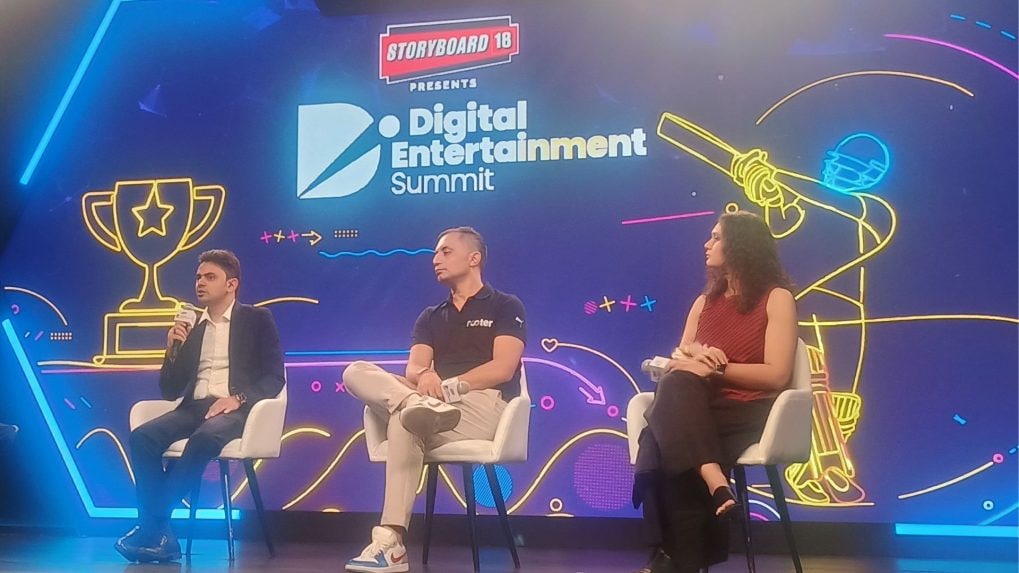Online Gaming industry needs for unified law amid regulatory patchwork
As India’s gaming sector faces inconsistent state rules and rising concerns over safety, industry leaders at Storyboard18 DES 2025 are urging the Centre to establish a single law to bring clarity and accountability to the booming online gaming landscape.
ADVERTISEMENT
As the online gaming industry grapples with inconsistent state regulations, calls are mounting for the central government to introduce a unified legal framework that would bring clarity to a fast-growing but contentious sector.
States “have overstepped their powers” by stepping into gaming regulation and labeling it as gambling, said Shivani Jha, founder of the eSports Players Welfare Association (EPWA). Speaking at Storyboard18’s Digital Entertainment Summit (DES) 2025, Jha noted that games like poker, ludo, and rummy have frequently faced legal challenges, but “nobody in their right mind would ever take FIFA or chess to court.” She added, “There's a lot of ambiguity over online games; therefore, a unified gaming law is necessary.”
This year, the central government indicated that it is considering a single regulatory framework for online gaming. A committee that includes officials from the Home Ministry, legal experts, and industry executives has been tasked with evaluating potential models for oversight.
Online gaming in India has drawn scrutiny from policymakers, activists, and civil society groups concerned about addiction among youth, fraud, and toxicity in online spaces. Industry insiders argue that many “legitimate” gaming companies have leaned on self-regulatory guidelines, but these measures alone may not be sufficient.
Piyush, founder and CEO of Rooter, acknowledged the rise in harassment and toxicity in esports, citing instances of female gamers who adopt male avatars to avoid abuse, as well as concerns around age-gating. “Such problems can be solved when platforms are regulated by authorities,” he said during the summit.
While regulation is widely seen as necessary, some argue it should be coupled with industry cooperation. Ananay Jain, partner at Grant Thornton, emphasized that the responsibility of “being responsible” should not fall solely on the government. Instead, Jain called for collaboration across the esports ecosystem to make digital entertainment more user-friendly while respecting user privacy.
Gaming needs its ‘RRR' moment! Experts on gaming as India's next soft power
“When it comes to taking active measures toward responsible digital entertainment, India is in great position, with laws like the IT Act of 2021, Digital Personal Data Protection Act, 2023, which provide content classification, and age appropriateness guidelines,” he said.
Jain added that self-regulation remains a crucial element for the entertainment industry’s growth. “In e-gaming, we have been pioneering and championing the cause of Code of Ethics and Code of Conduct,” he said.
Jha noted that while mechanisms exist to incorporate self-regulatory bodies in India, implementation has lagged. “While in the absence of that, companies and industry are doing their part. Since user safety is something that we all agree on, the government should step in collaboratively with civil society and industry practices to create a safe environment for the online gaming,” she said.
Opinion Trading platform is betting and gambling: MC Sarangan of TNOGA at Storyboard18 DES 2025
For gaming startups like Rooter, brand safety has emerged as an additional area of focus as the industry matures. “We take care of creators and ensure a safe environment for users without hampering creativity,” Piyush said.
Rooter, which began building its creator ecosystem nearly three years ago, now advertises for more than 50 brands and has onboarded around two million Indian content creators, according to Piyush. The company recently launched Rooter Shop, an integrated platform where users can purchase gaming products that sync directly with their in-game accounts.
“If someone is purchasing gaming material from Rooter Shop, the buyer will be asked his BGMI PC code for verification. Thereafter, the buyer will be integrated through the game,” Piyush said, adding that the company follows marketplace norms by partnering with leading payment gateway providers.
As India’s online gaming industry expands, the push for a unified law could determine how the sector evolves—and whether it can balance rapid growth with safety, accountability, and innovation in one of the world’s largest digital markets.


